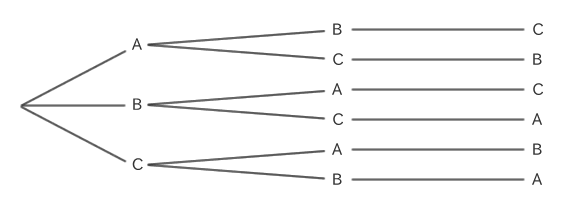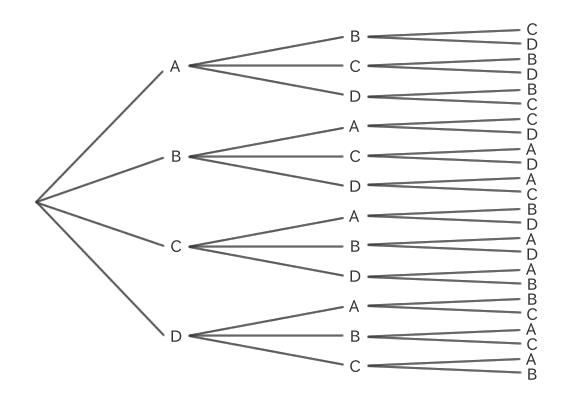Select r items from n different items and calculate the total number of ways they can be arranged in order.
- Front page
- Permutation and Combination Calculator
- Permutation Calculator
Permutation Calculator
About the calculation of Permutation
Enter the total number (n) and the number selected (r) and click the "Calculate Permutations" button. The total number of possible permutations will be calculated and displayed when r unique items are selected from the n items and arranged in order.
It also shows how to calculate the total number of arrangements.
Please enter positive integers up to 10,000 for Total number and Selected number.
What is Permutation?
A permutation is a sequence of several distinct things chosen and arranged.
The total number of ways to arrange a permutation is written as nPr, and represents the total number of ways to arrange the numbers (r) selected from the total number (n).
nPr = The total number of ways to arrange n to r items
For example, let's say you have three letters, A, B, and C.
If we draw the arrangement in a tree diagram, it would look like this:

In this case, there are six ways to arrange the cards: ABC, ACB, BAC, BCA, CAB, and CBA.
In permutations, the numbers are arranged in order, so if the arrangement is different, they are considered different.
How to calculate Permutation
When calculating the total number of ways to arrange things in a permutation, we consider how many ways there are for the first order, and how many ways there are for the second order, as in a tree diagram.
For example, suppose there are four letters, A, B, C, and D, and you choose three of them to arrange in order.
The first one has four possibilities: A, B, C, and D, the second one has three possibilities other than the first one, and the third one has two possibilities.
Therefore, the total number of arrangements is 4×3×2, or 24.

In this way, the total number of ways to arrange the numbers (r) selected from the total number (n) is multiplied by n, (n-1), (n-2), and so on, resulting in r arrangements.
Total number of arrangements = n × (n−1) × (n−2) × ... × (n−r+1)
Therefore, the formula for permutation using factorials is as follows:
Formula for the total number of permutations
nPr = n!(n−r)!